#VolkswagenGroup
U.S. Gives Volkswagen's New Boss 'Safe Passage' Guarantee
Shortly after the United States formally accused former CEO of Volkswagen Martin Winterkorn of criminal wrongdoing related to the company’s diesel emission scandal, it decided to let the company’s new boss know that he’s safe to visit whenever he likes. The U.S. Justice Department has agreed to give Herbert Diess a safe-passage deal that allows him to travel without fear of being arrested.
Diess was also given the country’s assurance that he’ll be given advance notice if prosecutors eventually decide to charge him over the emissions cheating issue. So far as we know, no such deal exists for his predecessor, Matthias Müller, who replaced Winterkorn in September of 2015.
Germany to Continue Probing Winterkorn and VW, but Does That Mean Anything?
Germany intends to stay on ex-Volkswagen Group CEO Martin Winterkorn after news broke Thursday that the former top executive faces criminal charges in the United States.
The indictment, filed under seal in March, was opened in a U.S. District Court in Detroit on Thursday during VW’s annual meeting in Germany. “If you try to deceive the United States, then you will pay a heavy price,” said U.S. Attorney General Jeff Sessions. “Volkswagen’s scheme to cheat its legal requirements went all the way to the top of the company.”
However, the burden of tangible justice will likely fall on Europe. Germany doesn’t make a habit of extraditing citizens for trial, and it’s still conducting its own investigation into VW Group’s emissions-cheating scandal — which it intends to continue.
“Our investigation strategy does not change just because the Americans have filed charges against Winterkorn,” a spokesman for the prosecutors’ office of Brunswick said on Friday. You’ll have to excuse us for not having much faith Germany’s justice system, as its current strategy appears to involve conducting as many raids as humanly possible without any results.
Volkswagen's Former CEO Finally Charged Over Diesel Cheating Scandal
Former Volkswagen CEO Martin Winterkorn has been charged by U.S. prosecutors with conspiracy and wire fraud, according to an indictment that was unsealed in a Michigan federal court on Thursday. For those of you who have been following the Dieselgate scandal from the beginning, this has been a long time coming.
Winterkorn has been at the epicenter of the emissions-cheating issue since before VW’s earliest admissions and was swiftly removed from his post as the automotive group’s chief executive in 2015. He also had a major falling out with ex-supervisory board chairman Ferdinand Piëch after being confronted on the emissions issue during the Geneva Motor Show.
The two had previously held a very close relationship but a power struggle within the organization appeared to have been brewing for quite some time, making the scandal an important turning point. Piëch became vaguely accusatory of Winterkorn in the aftermath and eventually cut ties with the company and, by extension, his family. All the while Winterkorn was under investigation in both the United States and Germany.
Porsche Powertrain Boss Arrested in Germany: Report
Jörg Kerner, Porsche’s head of powertrain development, has reportedly been arrested by German authorities for playing an alleged role in Volkswagen Group’s diesel emissions scandal.
Kerner, who sources say is being held on remand due to the potential of being a flight risk, was appointed director of Porsche’s powertrain development division in October 2011. Before that, Kerner worked for supplier Robert Bosch GmbH from 1986 to 2004, after which he oversaw development of engine electronics and software for Audi.
German Diesel Probe Goes Deep With Porsche
The investigative parade continues in Germany. Prosecutors investigating Volkswagen Group’s diesel-emissions scandal have now turned their attention to Porsche. Roughly 10 facilities owned by the automaker in Bavaria and Baden-Wuerttemberg were searched by around 160 investigators.
Stuttgart-based prosecutors claimed to be interested in three specific individuals suspected of fraud and fraudulent advertising as it relates to the manipulated emissions-control systems of diesel passenger cars. The office clarified that Porsche CEO Oliver Blume was not among them, however.
Convoy? Toyota's Hino to Join Forces With Volkswagen's Truck Unit
Volkswagen AG and Toyota Motor Corp are forming a truck-based alliance, allegedly to cut R&D costs. While the two automakers joust for the title of biggest in the world, their trucking arms must have had a rough 2017 to necessitate an alliance solely on the grounds to limit development expenditures… right?
Not exactly. Volkswagen Truck & Bus actually had a really good year. Strong sales pushed revenues up 12.1 percent, and operating profits before special items increased by 26.8 percent (for over $2.41 billion). Meanwhile, Toyota’s Hino saw operating profits improve by 21.5 percent. So why bother with the alliance of both truck builders saw strong returns based on their respective sizes?
Diess Named Volkswagen Group CEO As Company Plans a New Way of Managing Brands
Volkswagen brand chief Herbert Diess, 59, now pulls all the levers at Volkswagen Group. On Thursday, the automaker’s supervisory board appointed Diess as CEO and said goodbye to Matthias Müller, who stepped down from the top position “by mutual agreement,” effective immediately.
The shakeup at the top comes as Volkswagen Group changes the way it manages the multiple brands under its corporate umbrella. There’s now a plan for six new business areas (plus the formation of a China region), with VW Group brands organized into three tiers — volume, premium, and super premium. All of this, in VW’s view, should lead to a streamlined decision-making process and a nimbler company.
Volkswagen 'Considering' Replacing CEO Matthias Mller With the Diess Man
Volkswagen Group is thinking about replacing chief executive Matthias Müller with the head of its VW brand, Herbert Diess. According to inside sources, however, the decision already appears to have been made. When questioned about staffing changes, the company said it was “considering evolving the leadership structure” as it relates to the the management board — which could extend to a change in CEOs.
An automaker typically wouldn’t even hint at such a thing if it wasn’t already a done deal. That means Müller is almost guaranteed to be moving on soon, bringing his extended history with the company to a close. A true company man, Matthias completed a tooling apprenticeship at Audi in 1977, before a reprieve where he left to study computer engineering. Returning to the brand in 1984, Müller moved up the ranks swiftly — eventually becoming CEO of Porsche in 2010 and replacing Martin Winterkorn as Volkswagen AG’s CEO during 2015’s diesel emissions scandal.
While his contract is good until 2020, the company could still press for an early retirement. In fact, some reports even have Müller removed from his post already.
Fewer Seats, More MPGs: Volkswagen Debuts Atlas Cross Sport in New York
Regardless of where we think Volkswagen’s true strengths prevail, the company is dead set on electrification. Granted, much of this is the direct result of the diesel emissions fiasco. But it doesn’t appear to be solely interested in providing lip service to an angry public; it wants to build these cars and it really wants you to be excited about that.
The brand’s current lineup doesn’t include much in the way of electrics, e-Golf notwithstanding, but CEO Matthias Mueller has promised to unveil a new EV “virtually every month” as its multi-billion-dollar investments into new battery technologies and charging infrastructure begins to bear fruit. In the meantime, we’ve grown accustomed to seeing VW parade a steady stream of electric concept vehicles. Normally, these are part of Audi’s e-tron lineup or the VW’s new I.D. sub-brand. However, the electric push has started spilling over into the core brand, and the latest product is more than just a battery-driven green machine. It feels tangible, like it might be meant for everyone — not just EV enthusiasts.
Volkswagen’s Atlas is a relatively spacious three-row, midsize crossover — fairly fuel efficient for its size, but not a hoot to drive. VW wants to remedy this by hybridizing the MQB platform, chopping a row of seats, and adding a helping of power that won’t jack up your weekly fuel bill. More importantly, this two-row model seems to bridge the gap between practicality and fun.
Extensive Probing Continues In Germany
While companies are often found guilty of sketchy and illicit behavior, it’s becoming increasingly difficult not to feel some measure of sympathy for German automakers. The same goes for the government officials whose job it is to repeatedly raid the homes and offices of people employed by those manufacturers. Once gain, German prosecutors have searched both Volkswagen and BMW over diesel-related shenanigans.
Volkswagen saw 13 of its offices raided in Wolfsburg throughout the month of March. Braunschweig-based authorities seized physical and digital files in the hopes of catching the automaker in a lie from 2015. At the time, VW claimed an in-house investigation found it had understated fuel consumption and carbon dioxide emissions on no more than 36,000 vehicles. Considering the diesel emissions scandal affected far more vehicle than this, as well as the company’s much higher earlier estimate, prosecutors hope to catch the company out.
Meanwhile, BMW saw its facilities searched over suspicions that it employed a defeat device to circumvent diesel emission testing. The automaker said authorities were looking into “erroneously allocated” software on the BMW 750d and BMW M550d.
VW Hopes to Take Revenge on Entire Mountain With I.D. R Pikes Peak Racer
Electric vehicles have been a sore spot for many motorsport enthusiasts — odd, considering they offer massive performance gains via gobs of instant torque. There’s just something about EVs that keeps them from gaining mass appeal. That said, Formula E is gaining some traction and automakers continue developing high-end electrics in the hopes of turning a profit and paving the way for mainstream models.
Volkswagen Group, which has promised to shift deep into electrification in the coming years, really needs to make these cars appealing. Its I.D. product line for the VW brand has spawned numerous concept vehicles with an emphasis on building positive associations. The Buzz is the most obvious example. Essentially the battery-electric reincarnation of the Microbus, the Buzz aims to help customers see EVs as friendly and fun, while tacking on some nostalgia for good measure.
However, the Buzz doesn’t offer heart-pounding excitement or mind-warping performance, so VW had to build a battery-powered racer. Announced last year, teaser images of the model showed a full-tilt insane vehicle outfitted in hill-climb gear. Volkswagen claims the model will enter into the Pikes Peak International Hill Climb for 2018 to take revenge on behalf of a Mk. II Golf from 1987.
Volkswagen Bringing New 'Volks-SUV' to United States, Asia
We were a little disappointed that Volkswagen decided to keep the T-Roc in Europe — not because we were clamoring for another subcompact crossover but because this one actually seemed sort of interesting. Its two-tone paint scheme and hinted specs seemed ready to take on the likes of the Jeep Renegade, Nissan Juke, and Fiat 500X. But VW said it wasn’t well-suited for the American market.
Although, there was no way the company could possibly leave the fast-growing segment alone and we assumed it would eventually come up with something else for the United States and Canada — which is exactly what happened. During a press conference in Wolfsburg, Germany, VW said it would export a new small crossover from Mexico into the U.S. but that the first run of the model will take place in China.
Referred to internally as the “Volks-SUV,” the vehicle should be a bit smaller than the recently upsized Tiguan but larger and less car-like than the European T-Roc.
Audi Abandons W12 Engine, New A8 Will Be Its Last Hurrah
Audi will continue offering a big W12 engine as an option on the 2019 A8, but it also confirmed the current generation will serve as the motor’s swan song. Afterward, none of its models will boast 12 cylinders, at least for the foreseeable future.
While the matter is less pertinent for North America, as the largest powerplant currently available for the sedan stateside is the 4.0-liter TFSI, it’s always sad to see downsizing. But it doesn’t make much sense for Audi to stick with the Bentley Bentayga-sourced 6.0-liter W12 when it isn’t a big money maker for the brand.
Prospects don’t look particularly good for Audi’s V10, either. As the brand presses deeper into electrification, engine size will take a backseat to kilowatt hours and hybridization. In fact, the R8 already has a twin-turbocharged V6 in the works. That motor could end up be a replacement, rather than an option.
Ghosn Says Nissan's Alliance Makes It the Biggest Dog in the Auto Yard
Despite Volkswagen delivering an impressive 10.74 million vehicles in 2017, Nissan-Renault Alliance head Carlos Ghosn says his automotive group was actually the top sales dog. VW managed a 4.3-percent increase over last year’s volume and set a new record for itself, but Ghosn argues that doesn’t matter if it’s counting heavy truck sales in its total sum.
“The [Renault-Nissan] alliance, with more than 10.6 million light private and commercial vehicles sold in 2017, is the premier global automobile group,” the CEO told a parliamentary committee hearing in Paris.
After the Mission E, Porsche to Develop an Electric Supercar Platform for Sharing
Porsche is apparently working on a new supercar platform for itself. However, both Audi and Lamborghini are said to be able to get in on the action, too. The platform is an entirely electric one, dubbed SPE, and it’s to be part of Volkswagen Group’s “third-wave” shift towards a fully electrified fleet.
However, the platform’s existence was only officially mentioned in VW’s capital markets presentation from November. The report shows SPE coming into play after the solidification of the initial MEB platform and the establishment of VW’s PPE (Premium Platform Electric) architecture — intended for luxury segment models after 2021. As the third phase of the group’s electrification strategy, SPE-based vehicles likely won’t enter production until 2025.



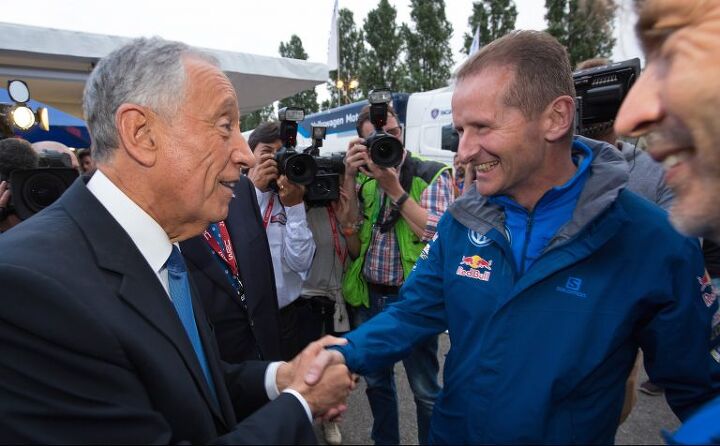

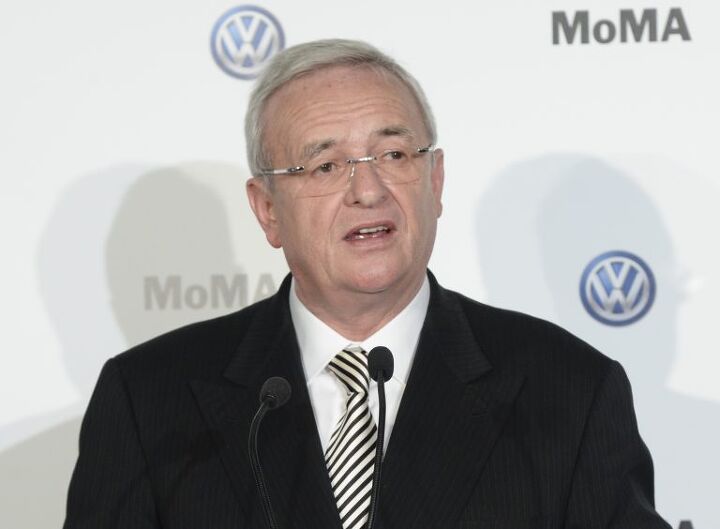


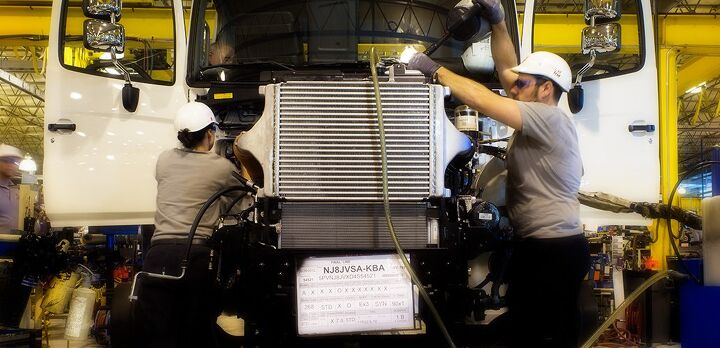


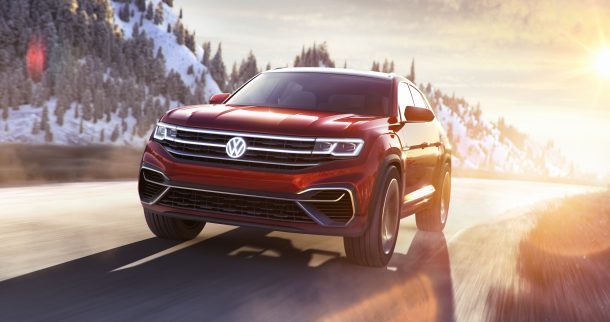
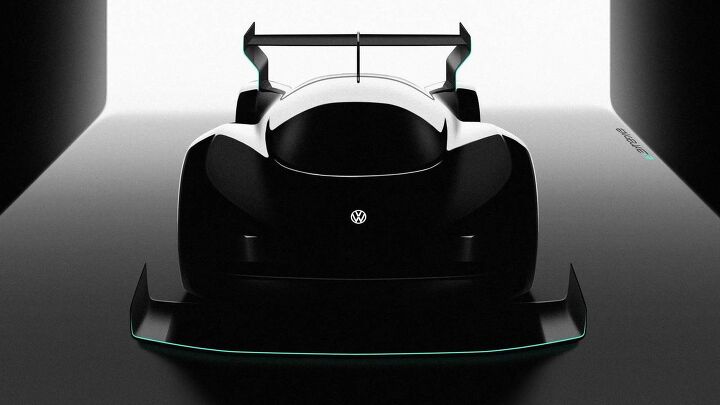
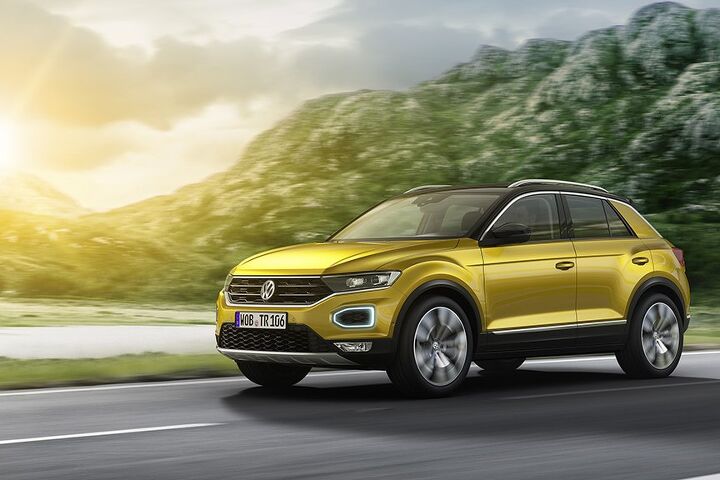


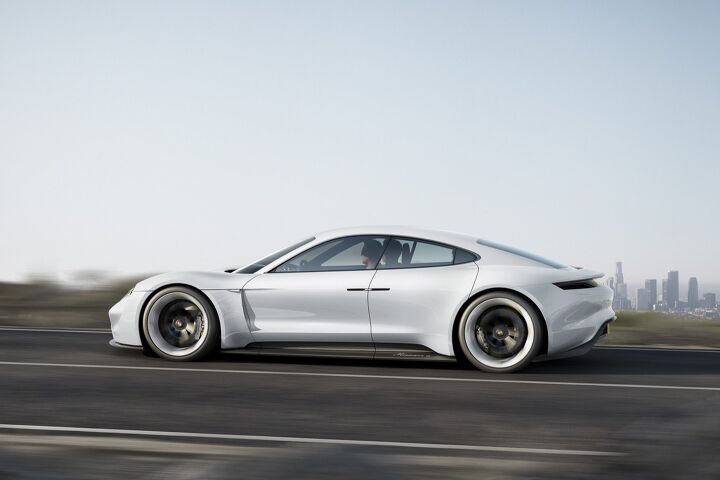












Recent Comments